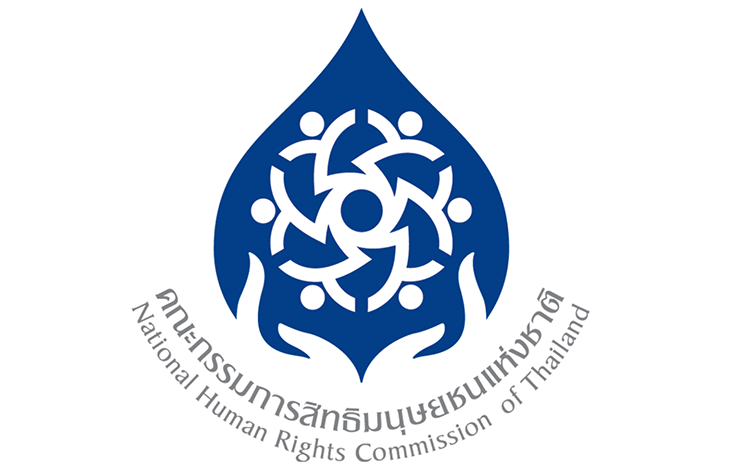(Bangkok, 28 July 2015) – The Asian NGO Network on National Human Rights Institutions (ANNI) deplores the flawed selection process that has led to the nomination of seven new candidates for the National Human Rights Commission of Thailand (NHRCT). The lack of a participatory, transparent and merit-based selection process has even resulted in the nomination of a candidate with a proven poor track record on human rights. This selection has once again weakened the credibility of the NHRCT.
The Selection Committee included the President of the National Legislative Assembly, which was appointed by the junta, the President of the Supreme Court, the President of the Constitutional Court, an individual selected by the Supreme Court Assembly, and an individual selected by the Administrative Court Assembly. The Committee selected seven candidates to be nominated out of 121 applications.
Of these only one candidate has clear expertise and experience in the area of human rights. Angkhana Neelapaijit, a prominent woman human rights defender, has long been campaigning against enforced disappearance and human rights violations in the three Southern provinces.
The other nominees include two medical doctors, with no track records on human rights, a senior Supreme Court judge, an associate judge of the Provincial Juvenile and Family Court, the Chair of the Association of Women Lawyers of Thailand and most controversially, an ultra-royalist network leader, Baworn Yasinthorn. The latter has previously filed lese majeste (defamation of monarchy) charges against civil society activists and has even called for harsher enforcement and penalties under Article 112 of the Penal Code.
“The closed-door selection process falls abysmally short of the prescribed minimum standards set by the Paris Principles and its General Observations. It weakens the institutional legitimacy of and public confidence in the NHRCT,” says Evelyn Balais-Serrano, the Executive Director of the Asian Forum for Human Rights and Development (FORUM-ASIA), the Secretariat of ANNI.
The NHRCT was criticised heavily for its lack of independence and neutrality, as well as its inability to address human rights violations in a timely manner. In its performance review in November 2014, the International Coordinating Committee of National Human Rights Institutions recommended for the NHRCT to be downgraded to “B” status. To date, the government has not taken any measurable or progressive steps to address the fundamental flaws raised. The final decision on its status will be taken in November 2015.
“There are no illusions that the government is bent on ensuring that the NHRCT remains impotent. Especially during the coup d’état, the NHRCT should have been more vigilant and proactive in the protection of the liberties and rights of the Thai people,” stresses Joses Kuan, the NHRI Advocacy Officer of FORUM-ASIA. “Instead of rubber-stamping the appointments, the National Legislative Assembly must reject all current candidates. The new comprehensive and inclusive process for the selection and eventual appointment for the NHRCT must be initiated. Otherwise, the NHRCT will not be taken seriously and continue to be an opportunity for window dressing for the government.”
About the Asian NGOs Network on National Human Rights Institutions (ANNI):
The Asian NGOs Network on National Human Rights Institutions (ANNI) was established in December 2006. It is a network of Asian NGOs and human rights defenders working on issues relating to National Human Rights Institutions (NHRIs). ANNI is composed of members that are national organizations from all over Asia. ANNI currently has 30 member organizations from 17 countries or territories. The work of the ANNI members focus on strengthening the work and functioning of Asian NHRIs to better promote and protect human rights as well as to advocate for the improved compliance of Asian NHRIs with international standards, including the Paris Principles and General Observations of the Sub-Committee on Accreditation (SCA) of the International Coordinating Committee (ICC).
For further inquiries, please contact:
- Joses Kuan, NHRI Advocacy Programme Officer, FORUM-ASIA, [email protected], +66 83544 5166
- Pimsiri Petchnamrob (English and Thai), East Asia Programme Officer, FORUM-ASIA, [email protected], +66 (0)813405409
Click here to download press release (PDF)
————————————————————
ประเทศไทย: กระบวนการสรรหาที่ปัญหานำไปสู่คณะกรรมการสิทธิมนุษยชนที่ไม่สง่างาม
เครือข่ายองค์กรพัฒนาเอกชนเอเชียว่าด้วยสถาบันสิทธิมนุษยชนระดับชาติ (ANNI) ไม่เห็นด้วยกับกระบวนการสรรหาที่นำไปสู่การเสนอรายชื่อผู้ได้รับการสรรหาเจ็ดคนเพื่อดำรงตำแหน่งคณะกรรมการสิทธิมนุษยชนแห่งชาติของประเทศไทย กระบวนการสรรหาที่ขาดการมีส่วนร่วม ความโปร่งใส และไม่ได้อยู่บนพื้นฐานของการคัดเลือกจากคุณสมบัติทำให้ปรากฏรายชื่อผู้ได้รับการสรรหาที่มีประวัติเลวร้ายด้านสิทธิมนุษยชน การสรรหาครั้งนี้มีผลให้คณะกรรมการสิทธิมนุษยชนแห่งประเทศไทยยิ่งสูญเสียความน่าเชื่อถือ
คณะกรรมการสรรหาประกอบด้วยประธานสภานิติบัญญัติแห่งชาติซึ่งถูกแต่งตั้งโดยเผด็จการ ประธานศาลฎีกา ประธานศาลรัฐธรรมนูญ บุคคลซึ่งถูกคัดเลือกมาจากที่ประชุมศาลฎีกา และบุคคลซึ่งถูกคัดเลือกมาจากที่ประชุมศาลปกครอง คณะกรรมการสรรหาได้คัดเลือกตัวแทนเจ็ดคนจากทั้งหมด 121 คน
จากผู้ที่ได้รับการเสนอรายชื่อทั้งหมด อังคณา ละไพจิตร ซึ่งเป็นนักปกป้องสิทธิมนุษยชนหญิงที่ทำงานรณรงค์ต่อต้านการบังคับให้สูญหายและการละเมิดสิทธิมนุษยชนในสามจังหวัดชายแดนภาคใต้เป็นเพียงคนเดียวเท่านั้นที่มีประสบการณ์และความเชี่ยวชาญในด้านสิทธิมนุษยชน
ผู้ได้รับการเสนอรายชื่ออื่นๆ ประกอบด้วยนายแพทย์สองคนที่ไม่เคยมีประวัติการทำงานด้านสิทธิมนุษยชน ผู้พิพากษาอาวุโสจากศาลฎีกา ผู้พิพากษาสมทบจากศาลเยาวชนและครอบครัวระดับจังหวัด ประธานสมาคมบัณฑิตสตรีทางกฎหมาย และก่อให้เกิดเสียงวิพากษ์วิจารณ์มากที่สุดคือผู้นำของเครือข่ายพิทักษ์สถาบัน บวร ยสินทร ซึ่งมีประวัติในการแจ้งความคดีกฎหมายหมิ่นพระบรมเดชานุภาพต่อนักกิจกรรมทางสังคม รวมถึงการเรียกร้องให้มีการบังคับใช้และการลงโทษที่รุนแรงขึ้นสำหรับกฎหมายอาญามาตรา 112
“การสรรหาอย่างปิดลับนี้ล้มเหลวอย่างร้ายแรงในการปฏิบัตติตามหลักการปารีสและข้อสังเกตทั่วไปของหลักการปารีส กระบวนการสรรหาที่ว่านี้ยังทำให้ความชอบธรรมและความเชื่อมั่นของสาธารณะที่มีต่อสถาบันสิทธิมนุษยชนแห่งชาติอ่อนแอลง” เอเวอลีน บาลาอิส-เซอร์ราโน ผู้อำนวยการบริหารของฟอรัมเอเชีย ซึ่งเป็นกองเลขานุการของ ANNI กล่าว
ที่ผ่านมา คณะกรรมการสิทธิมนุษยชนแห่งชาติถูกวิพากษ์วิจารณ์อย่างหนักในประเด็นความเป็นอิสระและความเป็นกลาง เช่นเดียวกับการไร้ความสามารถในตอบสนองต่อการละเมิดสิทธิมนุษยชนได้อย่างทันท่วงที จากรายงานการประเมินในเดือนพฤศจิกายน 2557 คณะกรรมการประสานงานนานาชาติแห่งสถาบันสิทธิมนุษยชนแห่งชาติแนะนำให้ลดสถานภาพของคณะกรรมการสิทธิมนุษยชนของประเทศไทยไปเป็นสถานภาพบี จนกระทั่งวันนี้ รัฐบาลไม่ได้มีมาตรการใดๆ เพื่อแก้ไขข้อกังวลต่างๆ ที่ถูกหยิบยกขึ้นมา การตัดสินใจเพื่อปรับลดสถานภาพจะมีขึ้นในเดือนพฤศจิกายน 2558
“เป็นที่ชัดเจนว่ารัฐบาลไทยตั้งใจจะทำให้คณะกรรมการสิทธิมนุษยชนแห่งชาติคงความไม่มีประสิทธิภาพต่อไป โดยเฉพาะอย่างยิ่งในช่วงเวลาของการรัฐประหารที่คณะกรรมการสิทธิมนุษยชนแห่งชาติควรจะเฝ้าระวังและตื่นตัวมากขึ้นในการปกป้องสิทธิเสรีภาพของประชาชนไทย” โจเซส กวน เจ้าหน้าที่รณรงค์สถาบันสิทธิมนุษยชนแห่งชาติของฟอรัมเอเชียย้ำ
“แทนที่จะเป็นเพียงแค่ตรายาง สภานิติบัญญัติแห่งชาติต้องปฏิเสธรายชื่อผู้ได้รับการสรรหาชุดปัจจุบัน และต้องมีกระบวนการสรรหาอย่างครอบคลุมและมีส่วนร่วมสำหรับการสรรหาและแต่งตั้งคณะกรรมการสิทธิมนุษยชนในประเทศไทย มิฉะนั้น คณะกรรมการสิทธิมนุษยชนแห่งชาติก็จะไม่ได้รับการยอมรับและเป็นเพียงการประดับหน้าร้านสำหรับรัฐบาลเพื่อปกปิดปัญหาที่แท้จริง”



